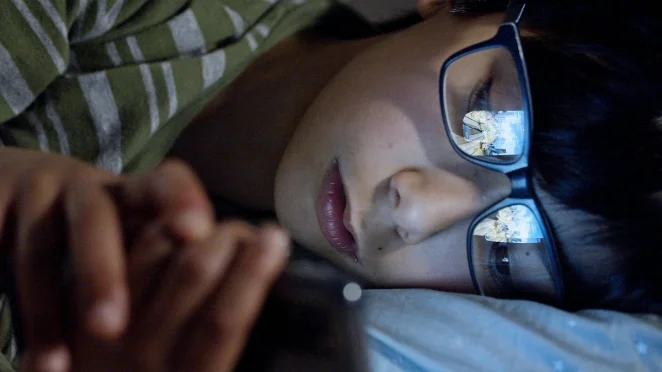Why does everyone look successful in social media?
Discover why everyone seems successful on social media and why you feel like the only one struggling. Learn the truth behind the highlight reels and perfect lives you see online.

What You’re Actually Looking At
Julia from your high school is in Paris. Eiffel Tower in the background. Expensive-looking outfit. Big smile.
Your immediate thought: “Damn, she must be loaded now.”
Here’s what you’re actually looking at: One photo. One angle. One moment she chose to share.
Everything else-the money, the success, the perfect life-you made that up in your head.
The Reality of That Photo
You don’t know:
- If this trip maxed out her credit card
- If she saved for three years to afford this
- If her parents paid for everything
- If this is literally all her savings gone in one week
You don’t know. But you filled in the blanks anyway.
Social media isn’t lying to you. You’re lying to yourself about what you’re seeing.
The Science of Snap Judgments
Here’s something you might not know: your brain forms competence judgments from photos in less than 100 milliseconds.
That’s faster than a blink. Research shows that visual impressions-formed in a fraction of a second-impact everything from electoral outcomes to leadership selection. You’re not carefully analyzing Julia’s life. Your brain is making split-second judgments based on one curated image.
And here’s the kicker: these instant judgments affect your mood, self-esteem, and mental state long after you’ve scrolled past.
A comprehensive study published by the National Institutes of Health found that young adults who use social media more frequently visit more platforms show:
- 3x greater odds of high depressive symptoms
- 3.2x greater odds of high anxiety symptoms
This isn’t about being “too sensitive.” This is measurable, documented psychological impact.
The Comparison Trap
Studies on Facebook users found that negative comparisons with others directly contribute to rumination and subsequent increases in depression symptoms.
You’re not imagining it. The spiral is real:
- You see the curated image
- Your brain compares (involuntarily)
- You feel inadequate
- You ruminate on it
- Symptoms worsen over time
Research shows that individuals with moderate to severe depressive symptoms prefer communicating on social media rather than in-person-which creates a feedback loop. The very platform making you feel worse becomes the place you spend more time.
The Angle Game
Everyone posts:
- What they want you to see
- From the angle they want you to see it
- With the caption they want you to believe
You don’t post your worst moments either. Nobody does. We all curate.
So why do you assume everyone else’s posts are their whole truth while yours are just highlights?
What The Data Shows
Research on social media use patterns reveals:
- More frequent visits to social media platforms correlate with greater depressive symptoms
- Quantity matters: using 7-11 different platforms vs. 2 or fewer platforms = 3x higher odds of depression and anxiety
- Social media replaces face-to-face interactions, contributing to greater loneliness and worsening existing mental symptoms
Your screen time isn’t neutral. It’s actively reshaping how you perceive yourself and others.
The Stories We Tell Ourselves
You see a post. Within seconds, you’ve constructed an entire narrative:
“She’s in Paris. Must be rich. Probably has a great job. Life figured out. Meanwhile, I’m here struggling.”
None of that is in the photo. You created it.
The photo shows: someone in Paris. Everything else is a story you wrote and decided to believe.
What You’re Actually Comparing
Your whole life vs. her best 0.3%.
You know your bills, struggles, bad days, anxiety, failures. You don’t know any of hers. You’re just guessing.
You’re not comparing realities. You’re comparing your documentary to everyone else’s trailer.
Studies confirm what you already feel: social media use leads to increased exposure to harm, social isolation, and social comparison pressure. The “highlight reel effect” isn’t a metaphor-it’s a documented psychological phenomenon with measurable mental health consequences.
What You’re Really Seeing
- The vacation, not the debt
- The promotion, not the burnout
- The relationship photo, not the fight
- The success post, not the failure before it
- The smile, not the breakdown
You’re seeing what they chose to show. And you’re choosing to believe that’s all there is.
The Mental Health Cost
National surveys show that among 14-22 year olds with moderate to severe depressive symptoms:
- 31% reported being “trolled” or facing hostile comments (vs. 14% without depressive symptoms)
- Over 3x greater odds of facing online harassment
- Increased risk of cyberbullying, which shows harmful impact on mental health in the form of increased depressive symptoms
The platform isn’t just neutral territory. For those already struggling, it can amplify the struggle.
The Pattern
Every time you see a post and spiral:
- You see a curated image
- Your brain makes instant judgments (under 100ms)
- You invent a story about what it means
- You compare that invented story to your real life
- You feel inadequate
- The cycle reinforces over time
The inadequacy isn’t coming from the post. It’s coming from the story you’re telling yourself about the post.
Julia didn’t do anything to you. She posted a photo.
What you did with that photo-the assumptions, the comparisons, the spiral-that’s all you.
What The Research Actually Says
A comprehensive review of social media and mental health published by the National Library of Medicine found:
Benefits exist (connection, peer support, reduced isolation) but risks are real and serious:
- Increased depressive symptoms and anxiety
- Social comparison pressure
- Greater social isolation after rejection on social media
- Negative impact on self-esteem and wellbeing
The science isn’t telling you to quit social media. It’s telling you what you’re actually looking at when you scroll: a carefully curated highlight reel that your brain treats as someone’s full reality in less than a tenth of a second.
You can’t stop your brain from making snap judgments. But you can stop treating those judgments as truth.
What’s Really Happening
Social media gives you incomplete information, and your brain fills in the gaps.
The problem? Your brain always fills in those gaps in ways that make you feel inadequate.
You never see Julia in Paris and think “maybe she’s broke now.” You always assume the best about them and the worst about yourself.
That’s the real issue. Not what people post. What you tell yourself about what people post.
Final Thoughts
Everyone looks happy on social media because everyone posts what they want you to see from the angle they want you to see it.
You do the same thing. You don’t post your breakdowns, your bills, your bad days. Neither does anyone else.
But somehow, you’re convinced everyone else’s highlights are their whole reality.
Julia’s in Paris. That’s all you know. Everything else, the money, the success, the perfect life-you made that up.
And then you used your own fiction to feel bad about your real life.
The next time you see a post and feel inadequate, ask yourself: What am I assuming? What do I actually know? What story am I telling myself right now?

Written by Igor
Creating content about burnout, mental health, and modern challenges.
Continue Reading

Is Reading Books Still Worth It in 2026?
In an age of AI summaries, 2.5x speed audiobooks, and non-stop content, are books obsolete?

Hustle Culture is Quietly Destroying a Generation
You wear your exhaustion like a medal. Here's what you're actually doing.

How to Not Feel Overwhelmed by News
The world is loud as hell. But this one easy change can help.